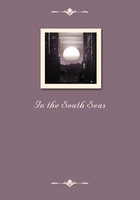
第10章 DEATH(1)
THE thought of death,I have said,is uppermost in the mind of the Marquesan.It would be strange if it were otherwise.The race is perhaps the handsomest extant.Six feet is about the middle height of males;they are strongly muscled,free from fat,swift in action,graceful in repose;and the women,though fatter and duller,are still comely animals.To judge by the eye,there is no race more viable;and yet death reaps them with both hands.When Bishop Dordillon first came to Tai-o-hae,he reckoned the inhabitants at many thousands;he was but newly dead,and in the same bay Stanislao Moanatini counted on his fingers eight residual natives.Or take the valley of Hapaa,known to readers of Herman Melville under the grotesque misspelling of Hapar.There are but two writers who have touched the South Seas with any genius,both Americans:Melville and Charles Warren Stoddard;and at the christening of the first and greatest,some influential fairy must have been neglected:'He shall be able to see,''He shall be able to tell,''He shall be able to charm,'said the friendly godmothers;'But he shall not be able to hear,'exclaimed the last.
The tribe of Hapaa is said to have numbered some four hundred,when the small-pox came and reduced them by one-fourth.Six months later a woman developed tubercular consumption;the disease spread like a fire about the valley,and in less than a year two survivors,a man and a woman,fled from that new-created solitude.
A similar Adam and Eve may some day wither among new races,the tragic residue of Britain.When I first heard this story the date staggered me;but I am now inclined to think it possible.Early in the year of my visit,for example,or late the year before,a first case of phthisis appeared in a household of seventeen persons,and by the month of August,when the tale was told me,one soul survived,and that was a boy who had been absent at his schooling.
And depopulation works both ways,the doors of death being set wide open,and the door of birth almost closed.Thus,in the half-year ending July 1888there were twelve deaths and but one birth in the district of the Hatiheu.Seven or eight more deaths were to be looked for in the ordinary course;and M.Aussel,the observant gendarme,knew of but one likely birth.At this rate it is no matter of surprise if the population in that part should have declined in forty years from six thousand to less than four hundred;which are,once more on the authority of M.Aussel,the estimated figures.And the rate of decline must have even accelerated towards the end.
A good way to appreciate the depopulation is to go by land from Anaho to Hatiheu on the adjacent bay.The road is good travelling,but cruelly steep.We seemed scarce to have passed the deserted house which stands highest in Anaho before we were looking dizzily down upon its roof;the CASCO well out in the bay,and rolling for a wager,shrank visibly;and presently through the gap of Tari's isthmus,Ua-huna was seen to hang cloudlike on the horizon.Over the summit,where the wind blew really chill,and whistled in the reed-like grass,and tossed the grassy fell of the pandanus,we stepped suddenly,as through a door,into the next vale and bay of Hatiheu.A bowl of mountains encloses it upon three sides.On the fourth this rampart has been bombarded into ruins,runs down to seaward in imminent and shattered crags,and presents the one practicable breach of the blue bay.The interior of this vessel is crowded with lovely and valuable trees,-orange,breadfruit,mummy-apple,cocoa,the island chestnut,and for weeds,the pine and the banana.Four perennial streams water and keep it green;and along the dell,first of one,then of another,of these,the road,for a considerable distance,descends into this fortunate valley.The song of the waters and the familiar disarray of boulders gave us a strong sense of home,which the exotic foliage,the daft-like growth of the pandanus,the buttressed trunk of the banyan,the black pigs galloping in the bush,and the architecture of the native houses dissipated ere it could be enjoyed.
The houses on the Hatiheu side begin high up;higher yet,the more melancholy spectacle of empty paepaes.When a native habitation is deserted,the superstructure -pandanus thatch,wattle,unstable tropical timber -speedily rots,and is speedily scattered by the wind.Only the stones of the terrace endure;nor can any ruin,cairn,or standing stone,or vitrified fort present a more stern appearance of antiquity.We must have passed from six to eight of these now houseless platforms.On the main road of the island,where it crosses the valley of Taipi,Mr.Osbourne tells me they are to be reckoned by the dozen;and as the roads have been made long posterior to their erection,perhaps to their desertion,and must simply be regarded as lines drawn at random through the bush,the forest on either hand must be equally filled with these survivals:the gravestones of whole families.Such ruins are tapu in the strictest sense;no native must approach them;they have become outposts of the kingdom of the grave.It might appear a natural and pious custom in the hundreds who are left,the rearguard of perished thousands,that their feet should leave untrod these hearthstones of their fathers.I believe,in fact,the custom rests on different and more grim conceptions.But the house,the grave,and even the body of the dead,have been always particularly honoured by Marquesans.Until recently the corpse was sometimes kept in the family and daily oiled and sunned,until,by gradual and revolting stages,it dried into a kind of mummy.
Offerings are still laid upon the grave.In Traitor's Bay,Mr.
Osbourne saw a man buy a looking-glass to lay upon his son's.And the sentiment against the desecration of tombs,thoughtlessly ruffled in the laying down of the new roads,is a chief ingredient in the native hatred for the French.